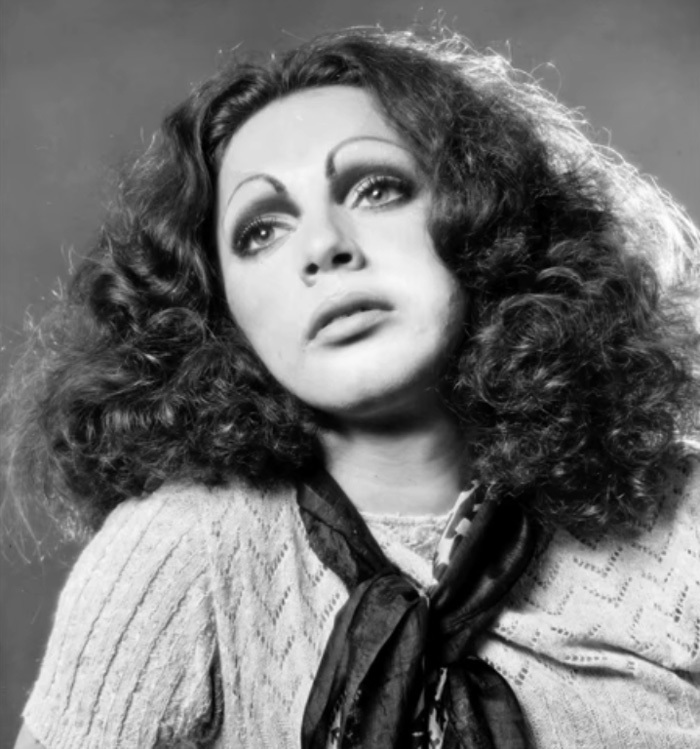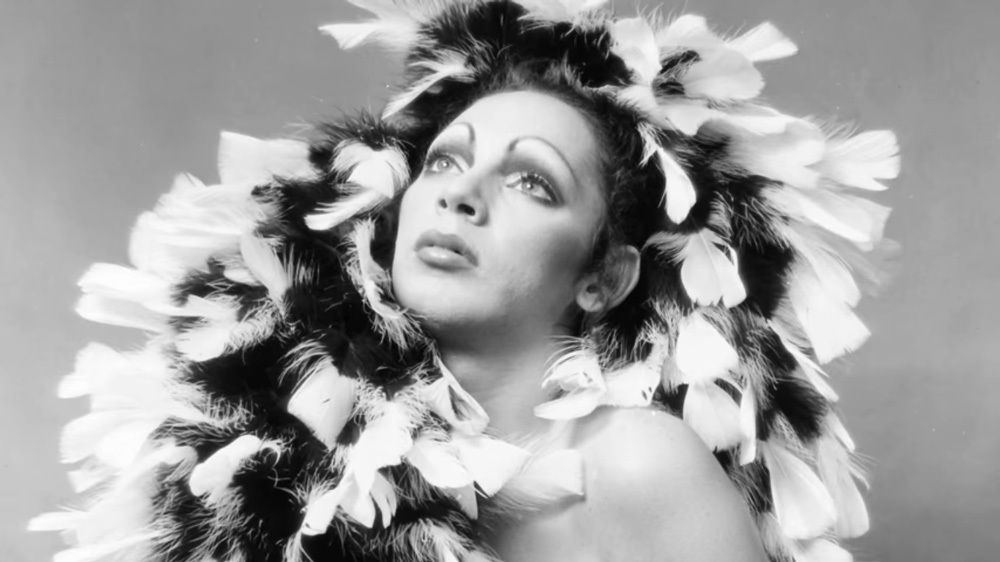In 1972 Lou Reed released Walk On The Wild Side, a song about trans culture, sex work, oral sex, and teen rebellion. Despite being subversive for the time, the track’s hypnotic double baseline and immersive lyrics saw it receive wide radio play.
While each verse refers to a different Andy Warhol Superstar and Factory regular, Holly Woodlawn, the subject of the opening vignette, is the character with whom the song is eternally linked. She’s the one who came from Miami FLA, hitch-hiked her way across the USA, and plucked her eyebrows on the way.
The real Holly was a transgender actress who ran away from home at 15, after years of bullying. Arriving in New York in 1962, she changed her name to Holly as a reference to her hero Holly Golightly, later adding Woodlawn—lifted from a sign she saw on an episode of I Love Lucy. After meeting Andy Warhol at a Factory screening of Flesh, she starred in his two films Trash and Women in Revolt.
She wrote about her experience in her 1994 memoir A Low Life in High Heels: The Holly Woodlawn Story. Describing her unorthodox coming of age she said: “At the age of 16, when most kids were cramming for trigonometry exams, I was turning tricks, living off the streets, and wondering when my next meal was coming.
Despite her early struggles, her performance in Trash brought her acting acclaim. She continued to act until her death this week, aged 69. Most recently she appeared in the popular TV show Transparent.
In a 1970 interview with The Village Voice she described how much of her breakout performance was her own creation: “Paul Morrissey said, ‘Do this, do that, fabulous,’ and so they kept adding to my part. I worked six days at $25 a day. Except for the last scene, everything was done in one take. The clothes, the dialogue, like, everything was mine because the character I play is me. I’ve been in those situations.’

Despite being immortalised in Lou Reed’s lyrics and Warhol’s films, Holly never allowed herself to get caught up in the hype. In an interview with transgender campaigner Penny Arcade she said, “I don’t know if we were artists, we were just doing what we were doing…We were just living our lives … we were total losers — you couldn’t get a job, we were all on welfare.”
Although in a recent Guardian article, she did express that it was all worth it: “‘I felt like Elizabeth Taylor! Little did I realise that not only would there be no money, but that your star would flicker for two seconds and that was it. But it was worth it, the drugs, the parties, it was fabulous.”
Credits
Text Wendy Syfret
Screengrab via YouTube
